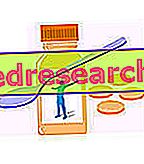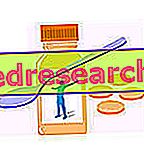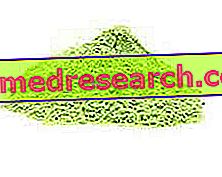FEMOSTON ® a drug based on estradiol hemihydrate + hydrogesterone
THERAPEUTIC GROUP: Female sexual hormones - Progestin and estrogen, fixed combination
IndicationsAction mechanismStudies and clinical effectiveness Usage and dosage instructionsWarnings Pregnancy and lactationInteractionsContraindicationsUndesirable effects
Indications FEMOSTON ® - Estradiol + Didrogesterone
FEMOSTON ® used in post-menopausal women (at least 12 months) as a hormone replacement therapy for the control of vasomotor and neurological symptoms.
The presence of estrogens and progestogens allows its use also in the prevention of osteoporosis associated with menopause, in high-risk women.
Mechanism of action FEMOSTON ® - Estradiol + Didrogesterone
Hormone replacement therapy during menopause is born with the intention of minimizing the vasomotor and neurological symptoms present in these women, which seriously compromises their quality of life.
More precisely, the decline in ovarian function that is accompanied by a drastic drop in blood concentrations of estrogen seems to be the main cause responsible for this symptomatology, and therefore may be partly compensated for by the exogenous intake of estradiol.
The oral estradiol, in fact, manages to distribute itself to various tissues, interacting with specific intracellular receptors and remodulating cellular gene expression, thus contributing to the restoration of normal functions, inevitably attenuating the complained symptomatology.
However, among the biological effects of estradiol there is also the proliferative effect on the endometrium, which significantly increases the risk of developing malignant growths.
In this case the combination with progestins such as didrogesterone, allows to compensate the estrogen proliferative activity on the endometrium with the secretory progestin, reducing the risk of hyperplasia and neoplastic transformations.
Studies carried out and clinical efficacy
1. FEMOSTON: EFFECTIVENESS AND SECURITY
Clinical trial demonstrating how the use of Femoston can guarantee good control over cell proliferation while allowing the maintenance of an acceptable bleeding profile.
2. FEMOSOTON AND LIPID METABOLISM
Study that demonstrates how hormone replacement therapy such as Femoston can contribute to the maintenance of a good lipidemic profile, thus reducing the risk of developing thromboembolic and cardiovascular diseases.
3. DIDROGESTERONE AND ENDOMETRIAL CONTROL
Work demonstrating that among the progestogens used in hormone replacement therapy, dydrogesterone can guarantee an excellent control on endometrial hyperplasia, and therefore also on the bleeding pattern
Method of use and dosage
FEMOSTON ®
1 mg estradiol-coated salmon-coated tablets and 5-mg dydrogesterone:
hormone replacement therapy with FEMOSTON ® involves the continuous intake of one tablet per day.
The half-life of the two active ingredients, estimated at around 24 hours, allows the tablet to be taken at the same time every day, with a little water.
Warnings FEMOSTON ® - Estradiol + Didrogesterone
Hormone replacement therapy during menopause should only be undertaken after consultation with your doctor or specialist doctor.
It is in fact appropriate to exclude the presence of conditions predisposing to the development of side effects such as thromboembolic and neoplastic events in the first place, related to the intake of female sex hormones.
Consequently, patients suffering from leiomyomas (uterine fibroids) or endometriosis, a history of thromboembolic disorders, risk factors for estrogen-dependent tumors, e.g. hereditary predisposition (1st degree relatives with breast cancer), hypertension, liver disease, diabetes mellitus with or without vascular involvement, cholelithiasis, migraine or headache (severe), systemic lupus erythematosus, history of endometrial hyperplasia, epilepsy, and osteosclerosis, should carefully evaluate with your doctor the cost / benefit ratio that would result from taking FEMOSTON ® and undergo periodic checks to monitor your health.
It is also advisable for the doctor to accurately define the potential side effects of the therapy and the signs with which these manifest themselves, so as to be able to provide immediate recognition and possible suspension of therapy.
FEMOSTON ® contains lactose so that its intake in patients with lactase enzyme deficiency, glucose / galactose malabsorption or lactose intolerance, may be associated with severe gastrointestinal disorders.
PREGNANCY AND BREASTFEEDING
The potential side effects of massive doses of estrogen on the health of the fetus and the absence of a correct safety characterization profile of FEMOSTON ® do not allow the use of this drug during pregnancy.
Furthermore, the ability of both active ingredients to concentrate in breast milk extends this contraindication even to the subsequent breastfeeding period.
Interactions
Given the hepatic metabolism, supported by the cytochrome enzyme class, described for both estradiol and didrogesterone it is possible to foresee possible pharmacologically relevant interactions capable of compromising the therapeutic efficacy of FEMOSTON ®
In fact, the simultaneous intake of inducing active ingredients of the aforementioned enzymes such as primidone, phenytoin, barbiturates, carbamazepine (used to treat epilepsy), rifampicin (used to treat tuberculosis), ampicillin, tetracycline, griseofulvin (antibiotics used for treatment of infectious diseases), ritonavir, modafinil and sometimes St. John's wort (hypericum perforatum), could cause a faster drop in the blood concentrations of the hormones contained in FEMOSTON ® with a compromise of its therapeutic effects.
It is useful to remember how the assumption of sex hormones could determine the variation of some laboratory parameters related to thyroid, hepatic, renal and adrenal function.
Contraindications FEMOSTON ® - Estradiol + Didrogesterone
FEMOSTON ® contraindicated in case of hypersensitivity to the active ingredient or to one of its excipients, in case of vaginal bleeding of unknown origin, breast cancer or dependent estrogen-progestin tumors, changes in liver and kidney function, existing or previous thromboembolic processes
Undesirable effects - Side effects
The intake of FEMOSTON ®, like the other drugs used in hormone replacement therapy, is often associated with numerous side effects.
Several clinical trials and careful post-marketing monitoring have described side effects:
migraine and headache, abdominal pain, nausea, changes in menstrual flow, dyspepsia, dizziness, increased breast tension and tenderness, anxiety, changes in mood, edema, asthenia, changes in liver function, cholelithiasis and pancreatitis.
These symptoms, fortunately regressable once the therapy has been suspended, are associated with more serious pathological conditions such as embolic thrombus events, cardiovascular and tumor diseases, which however seem to occur more frequently, especially in predisposed patients.
Note
FEMOSTON ® sold only under medical prescription.



